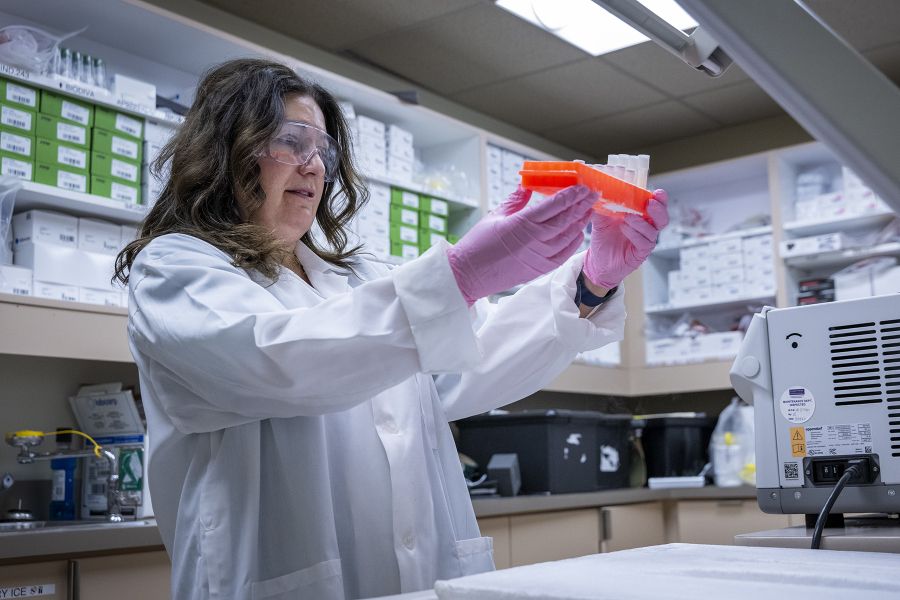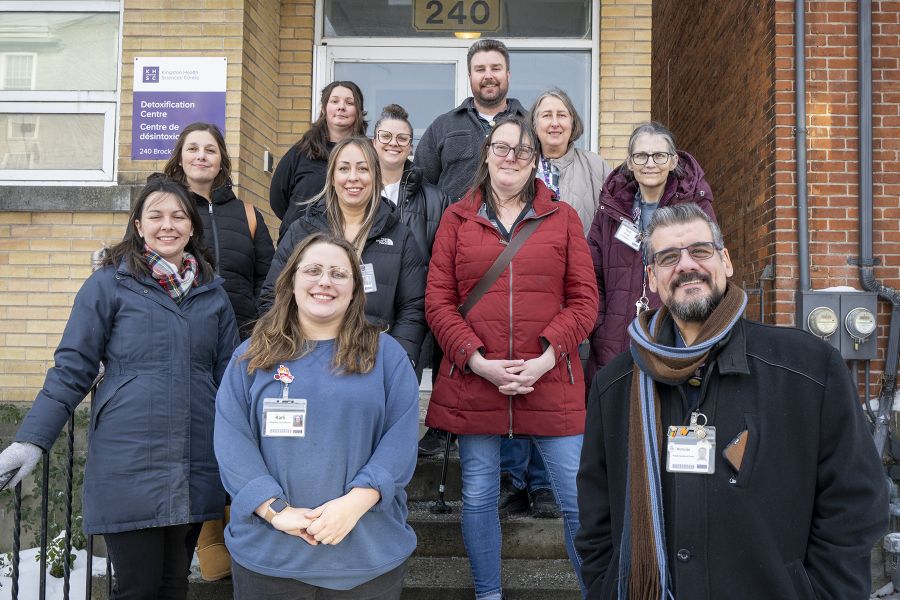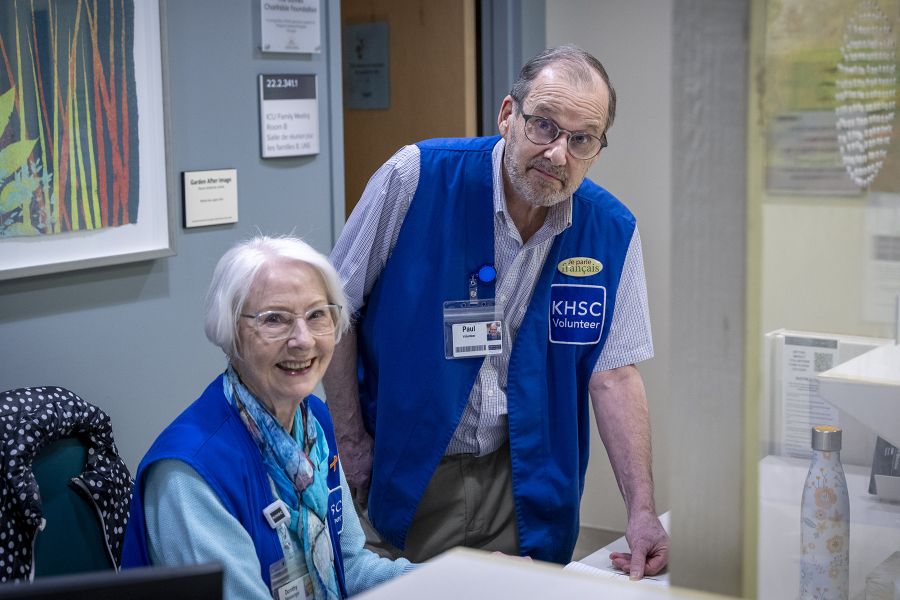Effective immediately masking is required for everyone when present on all inpatient units, in the Emergency Department (ED), the Urgent Care Centre (UCC), and the Children’s Outpatient Centre (COPC).
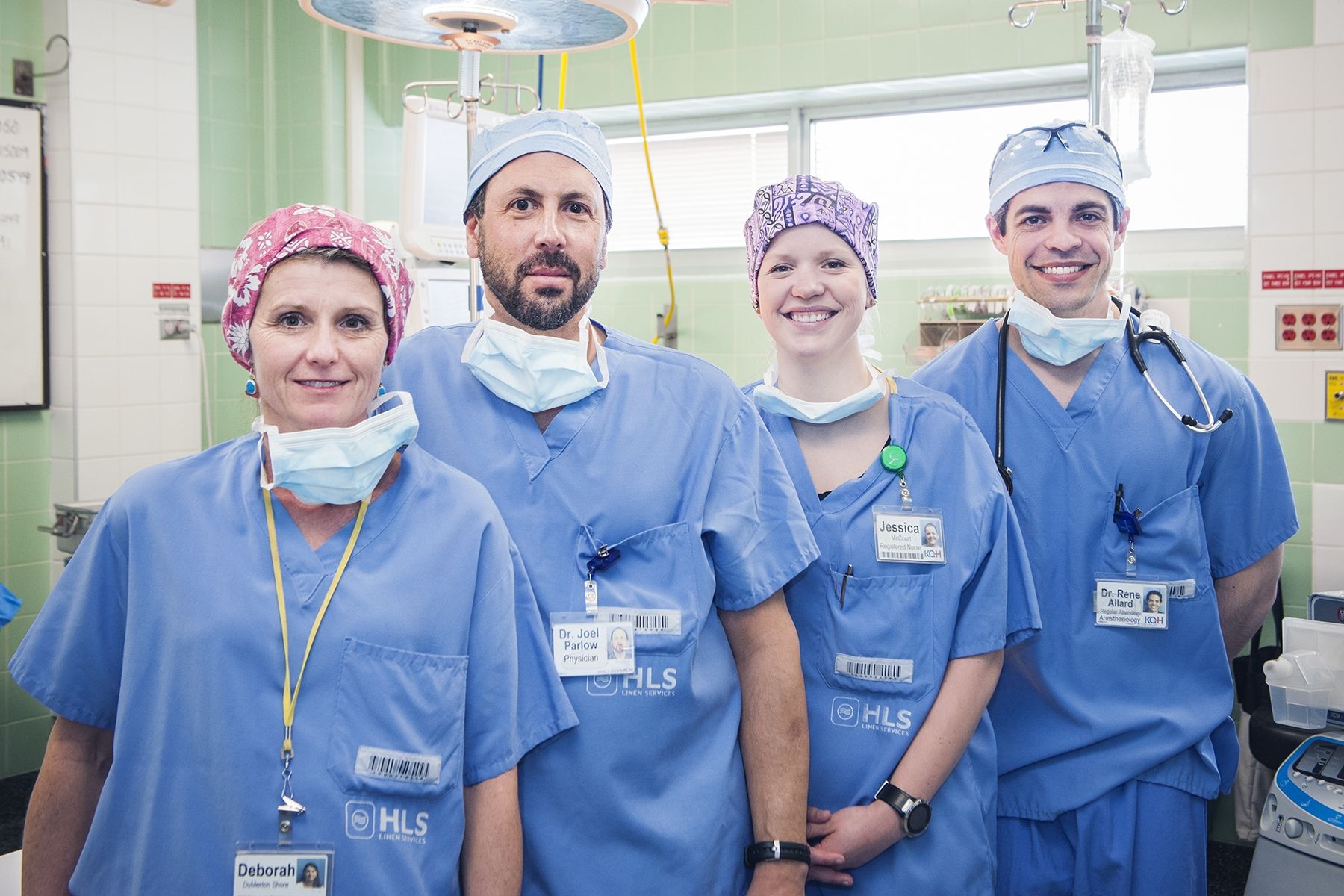
Kingston General Hospital and Queen’s University researchers are part of a groundbreaking international study that has shown that starting – or continuing – to take Aspirin before non-cardiac surgery as a way to protect the heart after surgery is ineffective and, in some cases, harmful.
Because surgery puts patients at increased risk of heart attack, doctors often continue to administer low doses of Aspirin before and after non-cardiac procedures. But new data from the Peri-Operative Ischemic Evaluation Study (POISE-2), published last week in the New England Journal of Medicine, shows that administering Aspirin provided no benefit in reducing the risk of heart-related complications after surgery.
“In fact, Aspirin was shown to increase the risk of serious bleeding after surgery, in some cases,” says Dr. Joel Parlow, Head of Anesthesiology and Perioperative Medicine at KGH and the hospital’s POISE-2 Site Principal Investigator. “This is important news for the medical community and for patients with risk factors for heart disease who are set to undergo non-cardiac surgery.”
The POISE-2 study was designed and led by Principal Investigator Dr. P. J. Devereaux and colleagues at McMaster University’s Population Health Research Institute. With over 10,000 patients from 23 countries and 135 centres, the study is the largest clinical trial to evaluate major cardiovascular complications in non-cardiac surgeries. More than 420 patients were enlisted from KGH, making it the fourth-largest recruiting site in the world, after Hamilton Health Sciences Centre and The Cleveland Clinic.
In addition to his role as Site Principal Investigator for KGH, Dr. Parlow served as a member of the International POISE-2 Steering and Writing Committees.
Parlow says the study results will mean better outcomes for patients. “It’s because of patient-oriented research like this that the medical community has the best possible evidence to guide practice,” he says. “With this information, we can look to other therapies that will make surgery safer for patients.”
He stresses the value of teamwork in achieving these findings. “Because of the dedication of our excellent research nurses Debbie Dumerton-Shore, Jessica McCourt and Beth Orr, and my co-investigator Dr. René Allard, KGH served as a vital contributor to this significant study,” says Parlow. “We are proud of our team who work side-by-side with patients, surgeons, nurses and collaboratively with the other members of the Department of Anesthesiology and Perioperative Medicine to conduct this important patient-oriented research that will make a difference in the lives of patients and their families.”
For additional information or media inquiries, please see the full media release below or click here.
Gallery
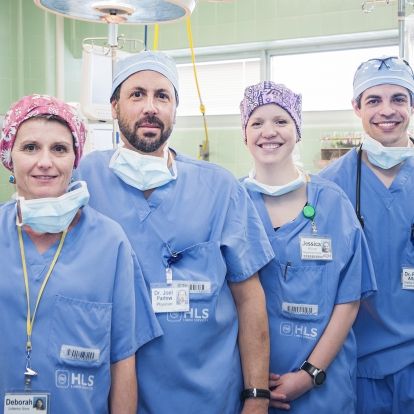
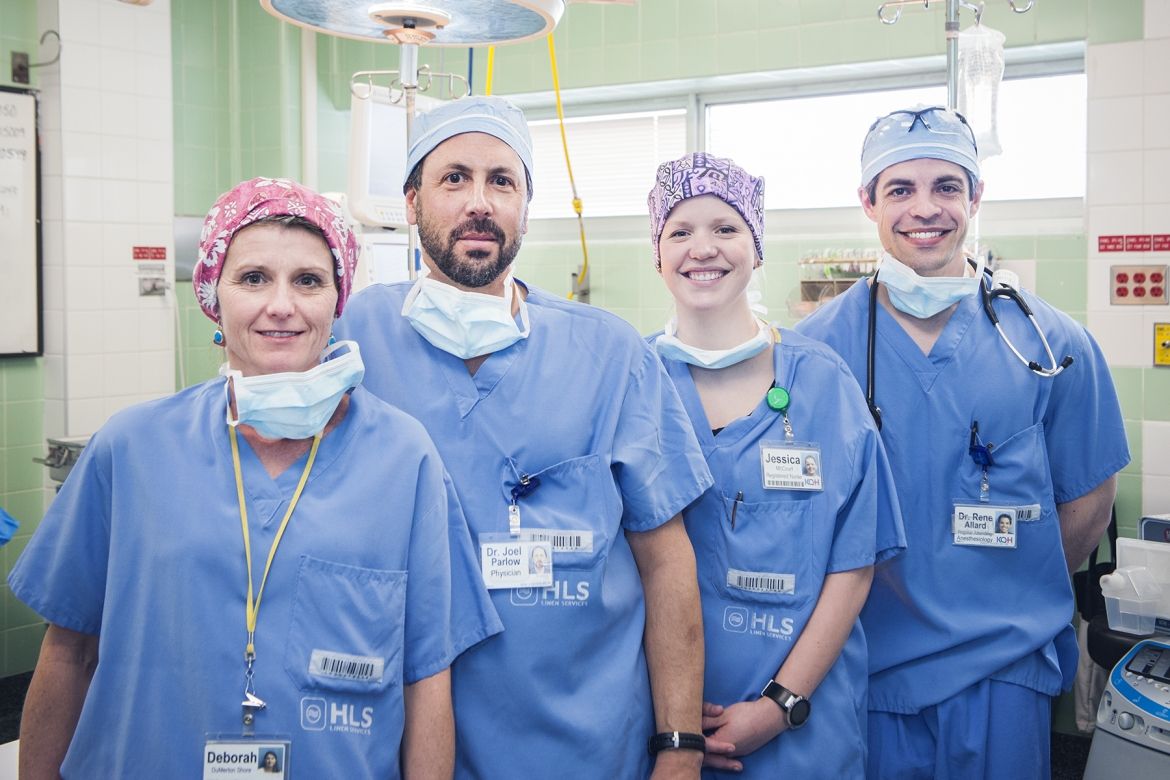
(L-R) Debbie Dumerton-Shore, Dr. Joel Parlow, Jessica McCourt, and Dr. René Allard are part of a ground breaking study investigating the use of Aspirin to protect the heart after surgery.

